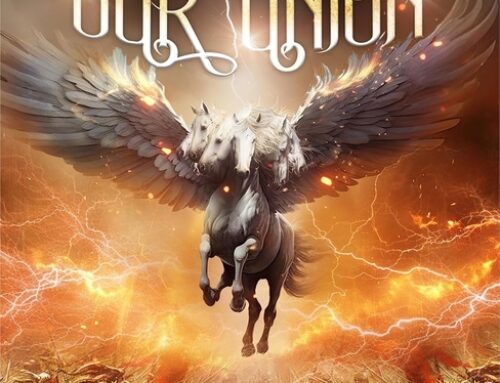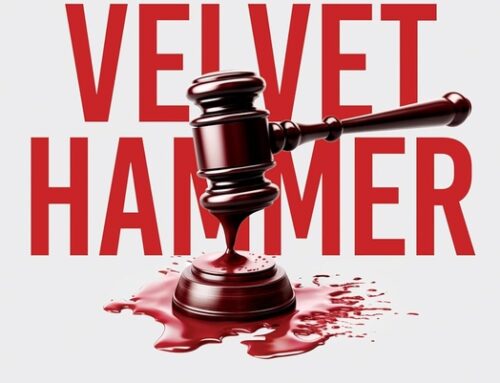Via Pod Peep comes news of Lulu buying out Poetry.com and replacing it with their own brand and self-publishing service. Here’s a screenshot.
Let me count the ways this is problematic. I can understand if Lulu.com central is more of a generic, corporate brand, as they want to attract more business-minded people who are interested in creating brochures and other promotional materials, or non-fiction manuals. But this is Poetry.com – something that is only an expression of a person’s artistic vision, so having such a cold and sterile environment just seems antithetical to a place where people are going to come and create art.
But that’s not the real problem. The real problem to me is this little button right here:
What this implies is that Lulu’s Poetry.com is not a place to publish poetry, it’s a place to publish bad poetry. Now, I realize that there can be good poetry that rhymes, but any serious poet who comes to that site and sees the rhyming button is going to scoff and flee in the other direction. It seems built for people who know very little about poetry – hobbyists, not people who live and breathe the artform.
Poetry is something that is perfectly suited to self-publishing, as the likelihood that a poet will get picked up by a mainstream press is infinitesimal. There are plenty of small poetry lit presses and chapbook presses, but these presses basically have the same reach as if you put out a book yourself. So poetry and self-publishing could be natural partners. But it seems like Lulu wants to continue the stereotype that print on demand publishing is the place where bad writing comes to die. Again, Lulu wants to reach the widest variety of people – including hobbyists – but they could do so with a more artistically-inclined site than the one they’ve put together.
Punk Rock Publishing
This ties somewhat into something else I’ve wanted to cover here: the fact that most self-publishing output is mainstream-centered, not people writing stuff that’s more innovative. Most of the review submissions that come into this site are people who are writing mainstream, commercial fiction that wasn’t good enough to make the cut.
The way for self-publishing to get taken seriously on a large scale is not if a Dan Brown comes out of Lulu. Frankly, I don’t care if some potboiler hits it big in the mainstream. People here should know that’s where I’m coming from – I’m more “literary fiction” minded, as generic as that term can be. For self-publishing to really be taken seriously, works of “serious” fiction need to come out of Lulu, and Lulu’s poetry site shows that this is not the demographic they’re aiming for. I know terms like “serious” are subjective, but I think you can tell the difference when something is written with more ambition.
There’s a great and thought-provoking post at Paperback Jack called Post Punk Publishing about how self-publishing has the potential to be what punk rock was in the late seventies. The ethic of: anyone can do it. Just learn two chords and you can start a rock band. It was revolutionary. Self-publishing most certainly has the potential to have that same kind of attitude and purpose, and until that happens it’s going to be perceived as a self-released slush pile, rather than a place where innovative writers use the new, innovative technology because traditional publishers are too timid to take a chance.
I have to disagree with MCM’s comment there that it’s difficult to go to war with the mainstream because traditional publishing is still publishing interesting and innovative work. Certainly they are, but they’re not taking as many chances as they could be. And you can’t forget that The Clash and the Sex Pistols were put out by mainstream record labels. But the true power of punk rock came out of places like SST records (Black Flag, Husker Du, Minutemen, et al.) or Alternative Tentacles (Dead Kennedys), which existed apart from the mainstream.
There are plenty of lit houses that use print on demand technology to put out books, but there’s not yet a print on demand movement: a band of writers like the Beats, the Lost Generation, or punk rock, all using the new technology. That’s asking a lot because it requires writers as good as Fitzgerald or Kerouac, but until that time happens, people aren’t going to take self-publishing seriously as the avenue for a serious literary movement. This would make self-publishing a more legitimate avenue, rather than a mainstream writer who’s able to sell a lot of copies. Really, this has already happened and it didn’t immediately vault self-publishing out of the cultural wasteland. Great writing needs to come out of Lulu, not popular writing. That’s when different sorts of articles will start to be written about the potential for self-publishing and people will take the medium more seriously.
To take this post full circle: that movement is much less likely to occur if sites like Lulu’s Poetry.com do not take the craft of writing more seriously and scares away more talented and ambitious writers.
Get an Editorial Review | Get Amazon Sales & Reviews | Get Edited | Get Beta Readers | Enter the SPR Book Awards | Other Marketing Services























I think you misunderstood me… I wasn’t saying that major publishers are taking all the chances they could be, I’m saying there’s a perception by the general public that literary fiction alread pushes the boundaries enough as it is. Readers are less likely to look for something “different” if they think variety already exists. Nobody rebels against an abundance of choice. What you’re left with is “here is more variety, just the kind that wasn’t published by professionals”, which is back to square one.
The conceptual shift needs to happen (as in film, to some extent) to tell people: the indies (or self-publishers) are the ones where real innovation lies. You may see something artsy out of the major players, but it’s NOTHING compared to what you see from the true artists of the field.
It’s not just a matter of quality (though quality is essential), but also the audience’s willingness to partake in unconventional quality. I’m not entirely sure how to achieve that goal, but it’s got to be done.
Henry, thanks for the shout and especially for such a great post. It’s good to have the sober insider’s view to balance my delirious outsider. Also, you’ve reminded me that lightning stuck not once but twice — the American punk axis was, in many ways, even more inspiring and had a happier ending than the Rough Trade story. Hope to keep talking about this… Meanwhile, thanks again!
Good points, MCM. And you’re welcome, JW. I’ll be paying close attention to your site – like what you’re doing.
I should add a P.S. to this post that the original Poetry.com was a scam outfit, so this is like piling lame on top of lame. From Wikipedia:
“Critics of the International Library of Poetry’s business model describe their practices as “deceptive and misleading” in that they misrepresent their activities as a contest based on the quality of poetry submitted, whereas in fact the quality has little or no influence on the outcome. They are also accused of portraying the anthologies they publish as a “real literary credit that poets can be proud of” while simultaneously producing anthologies that are available on special order only and which are full of poor quality poetry.[2] Other critics point out that standard industry practice is for winners of poetry contests to receive gratis copies of any publication of their work, and that ILP fails to follow this protocol.[3]
The Better Business Bureau comments that it has received “hundreds” of complaints concerning ILP, and that it considers their business to be vanity publishing.”
http://en.wikipedia.org/wiki/Poetry.com
P.P.S. From the Lulu blog, “We appreciate your feedback, and all I can really say is to reiterate that this is just the first iteration of Lulu Poetry and we will be continuously working on improving the site. Ultimately, our focus is on providing a benefit to the poetry community, and we will certainly be considering your feedback.”
http://lulublog.com/2009/04/14/announcing-lulu-poetry
Agreed Henry, that button almost made me choke … I think I threw up in my mouth a little. And this is a perfect example of why I cut my losses and left Lulu to pursue publishing through my own imprint — I couldn’t take the shame anymore. Shame by association. Just slog through a few review requests on the forums and you’ll know why. Not to mention Bob Young’s statement to NYT back in January.
“Indeed, said Robert Young, chief executive of Lulu Enterprises, based in Raleigh, N.C., a majority of the company’s titles are of little interest to anybody other than the authors and their families. “We have easily published the largest collection of bad poetry in the history of mankind.”
http://www.nytimes.com/2009/01/28/books/28selfpub.html?pagewanted=2&_r=1&em
Sorry, I cut off my own post.
That statement Mr. Young made seemed a bit condescending, and I no longer felt comfortable doing business with a company that didn’t value me as an artist and only valued my wallet.
I was not alone, many other writers were equally offended by his remark.
Yeah, unfortunately the self-publishing ‘houses’ are driven by the Almighty Dollar. They don’t really care what gets published, as long as they get their money. Sad. Someone needs to come up with a way to incorporate self-publishing and distribution to Borders and B and N stores. At that point, there might be a weed-out process imposed willy-nilly.
Of course, the traditional ‘houses’ are driven by Mammon too. The whole thing brings me to tears.
“I should add a P.S. to this post that the original Poetry.com was a scam outfit, so this is like piling lame on top of lame.”
That’s kind of what I was going to say. Who cares? Serious poets aren’t going to go to Poetry.com anyway.
OK, so obviously it’s worth caring about, but it’s hard to imagine Poetry.com ever becoming a legitimate self-publishing company.
Henry, I like your comment that for self-publishing to be taken seriously, works of serious fiction need to come out of this medium – not just popular fiction rejects from the mainstream. I think we might start to see more of this. I know one poet / novelist / screenwriter here in Australia who has published five literary novels with mainstream publishers – two were shortlisted for national prizes and won other awards; one was adapted to into a film, and some others have been optioned. So for a writer of literary fiction he’s done well. But his new novel is so different, so experimental, he doubts the mainstream publishers will touch it. He’s probably going to go the self-publishing route.
Nice article, Henry.
The Descendents’ “Suburban Home” from the SST release “Milo Goes to College” coincidentally popped up on the shuffle while I was reading this. “I want to be stereotyped. I want to be classified.”
We (Self-pubbies) have to be ugly. We have to be different. We have to be ourselves. We can’t be rejects. We have freedom. We have balls. We are whatever we need to be. This Lulu poetry shit is a disgrace but it doesn’t matter. Lulu is just a device. It’s a hammer. We have to be the finished project.
The revolution is wherever we want it to be.
The big issue for self-published writers is finding an audience. Packaged publishing services like Lulu provide only a platform – and an expensive one at that. Any band can hire Wembly Stadium and put on a show – but only a few can actually fill the venue with paying fans.
Maybe when POD services are available in every bookshop in every town authors will be able to circumvent the publishers and the self-publishing services completely and get directly to the readers. Maybe then the kinds of movement you wrote about (and I wrote about) can get started.
Yeah I just happened to put some things up on lulu’s new site (yeah yeah I feel like a gullible jackass) and came back to edit the poem a few days later. Lo and behold what do I find? A screen after I log in that says your poem is currently being considered for the hardbound anthology with the old poetry.com logo and everything. I think its hilarious how lulu is trying to create this new image while at the same time leaving things like that behind. What Im looking for is some ligit contests so I can actually test myself. I want to see what people think really. You guys have any good sites that would be actually worth my time?
Jason, that’s really insane that that’s still in place. I’m not a poet so honestly I’m not so up on poetry competitions. I did find this place today, which allows writers to upload short stories and it has story competitions. It’s in extreme beta, but it’s got some promise:
http://www.bibliofaction.com/
I think on the idea of having a lot of different and ‘serious’ fiction come out of self publishing… for this to happen, a lot of writers have to be “re-conditioned” or “deprogrammed” lol.
So many of us have spent many years listening to the wisdom of being “not too different.” Because “too different” won’t sell. At least not to NY. You have to be “just different enough, but also sorta kinda like that book that just hit the bestseller list last week.”
Many manuscripts get rejected because it’s just “too different’ and “too unique” that writers start to train themselves to blend in a little more. Everything that makes them truly unique “i.e. not mass-marketable like a widget,” they stifle. So we writers are going to have to re-learn how to think those “weirder thoughts” and give ourselves permission to be different again. I think once that happens we’ll see more self publishing innovation.
Zoe, That’s a really interesting point. I’ve had little directly to do with publishers but already my experience is that they try to push what I write towards more clearly-defined and marketable ‘genres’ – and I’m not in the least weird in my thoughts. It’s nice to think that self-publishing might lead to innovative, yet popular approaches to story-telling.
Hey Graham, that’s a good point when you say that stuff that isn’t even that “weird” is pushed to fit into these marketable “genres.”
While I think it would behoove a self published author to pick a genre in order to more easily find their readers, a lot of why things are so cookie cutter a lot of the time is probably because of reshaping fiction to make it better fit pre-conceived expectations. Some genres are more forgiving about formula than others.
Oh man… that’s the most beautifully ironic image I’ve seen in weeks.
One measure of competence is being competent enough to know how incompetent you are. If you don’t see anything wrong with a “Need Help Rhyming?” button on a poetry contest… you are the very definition of incompetence.
This is just so pure.
I self-published because this particular book will never find a home: as Zoe said, it’s too different. An epic fantasy about a middle-aged engineer? What are you smoking? Of course Dave Duncan pulled it off, but then, Duncan can pull of almost anything. Except his first book, which was dreck. See, he had to publish dreck to get published so he could publish the good stuff.
Irony. Don’t leave home without it!
Just for the record… I don’t consider Lulu a publishing house. I consider it a very fancy photocopier. When I show people my book, I’m careful to tell them I’m not published, just printed.
If you think of Lulu as a photocopier, then you’ll be very satisfied with them. They do a pretty good job of photocopying stuff.
If you guys think those sites are bad you should check out Triond. They will publish your poem on authspot for free and then you get a penny for every 6 or so people that click on it. That site is really self publishing gone wrong most of the articles are basically book reports on wikipedia articles typed up by sri lankens. I made a game review on a game that doesnt even exist just to see what would happen. Well it had more clicks than any of my poems.
The biggest problem with poetry writing is the only people you can find that want to read it are typically people that just want you to read their poems. Which is fine but is there a market out there for good poetry? I think poetry and short stories are perfect for todays adhd generation and I am certain someone will have great success with a true anthology of great works but the question is who?
I think this discussion handed me an epiphany on a silver platter. I wrote a book that I was absolutely sure could never be published. I did send it out to agents and publishers (just to be sure). Surprisingly I got a reply form an agent and a publisher. The publisher didn’t have a good reputation so I dropped them. But the agent had my interest. I asked for a contract that I could review before I went forward.
I’m not a seasoned writer regarding the business end of things, but I just couldn’t live with the requirements the contract listed. Most awful were those creative decisions that I had to surrender. This may sound pompous, but I’m more interested in creating art than revenue. I decided not to go forward at all. So the book sat.
Finally I decided to self-publish it. The likely hood of a large market for this work is nil and none. Admittedly the book is odd, experimental, a tortured use of the word “novel”, but it is what I want it to be.
But back to the epiphany:
I used self-publishing as an alternative because it suited the integrity of my expression best, and not because my expression isn’t suitable. I won’t lie: I hope my book finds an appreciative audience, but, as an artist, I believe the interests of an audience should never supersede honest, personal expression.
Thanks for binging this to mind.
I agree about the nefarious aspect of those poetry scams—buyer beware also comes to mind. If you do your due diligence instead of being a mindless slave to your ego, then you may well not become a victim.
I’ve been published by a mainstream publisher; however, for my latest book, An Artist Empowered, I did have an agent and publisher—difficult to get for sure. When it became clear to me that they were intent on editing out the theme, I had to find another option. When I discovered that lulu had a feature allowing you to design your own book instead of template, I went for it–the finished work is quite good.
While a book from a mainstream publisher might be taken seriously, on balance, it doesn’t really imply that the work is of any value, either.
Each case is unique.
Good discussions people. I believe that some writers write only to make money. Now I know that isn’t a bad thing. But me, I would like people to enjoy my work, be entertained by it.And self publishing companies like LULU advertise the financial side rather than wanting you to put out your very best. Edgar Allan Poe is a good example of expressing your soul and I believe that if people can put their soul down on paper, not only will there be no mistakes in printing(Because when people truly express themselves then they want it to be the very best it can be) but in the writing to. Sadly, I believe the chances of that happening are slim. I believe the serious artists among us should unite. In the early 1900’s there was The United Amateur Press (Check H.P. Lovecraft). Whose to say that we cannot resurrect it or begin a new one for the 21st century.
This is a wonderful post, and I’m especially intrigued by the comparison of self-publishing to Punk Rock. However, that link, http://paperbackjack.net/2009/04/13/post-punk-publishing/, appears to go to a site for paper products. Am I missing something?
Aw, that’s too bad. I guess the site is down now.